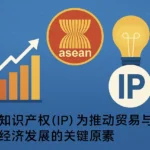This case concerns an application before the Intellectual Property Office of Singapore (IPOS) by SubAir Systems, LLC for a declaration of invalidity against the registered mark, “SubAir & device” in Class 7 under the Registered Proprietors, SubAir Systems Asia Limited (“SubAir Asia”).
As the parties in this case had contractual dealings in the past, the background facts are pertinent to the issue of invalidation that arose in Singapore after SubAir Asia successfully registered the SubAir Mark as illustrated below:
SubAir Systems, LLC was set up in 1995 in the USA. It blossomed into a company that came to be regarded as a global leader and specialist in subsurface aeration technology, maintenance and promotion of the wellbeing of green turf. They have been using the trademark “SUBAIR” and/or the green circular device with a stylised letter “S” (“the SubAir marks”) continuously and extensively for a long period of time throughout the world, directly and indirectly through distributors or agencies. In Asia, the SubAir marks were used since before 2002.
In 2004, SubAir Asia, a limited liability company in Hong Kong approached SubAir Systems with a business proposition, which resulted in the parties entering into a Sale and License agreement (“the agreement”) which took effect on 1 October 2004. As a result of the agreement, SubAir Asia began using the SubAir marks in various countries. On 29 July 2005, SubAir Asia took the liberty of applying for 9 trademarks for various SubAir marks in Classes 7, 11 and 37 in Singapore. Although SubAir Systems managed to oppose 8 of the applications, one of the applications proceeded to registration. This invalidation action pertains to that one mark which proceeded to registration.
Interestingly, this invalidation action was decided solely on SubAir System’s evidence before the Registrar as SubAir Asia made a grave procedural error when they failed to respond to the application for invalidity (by way of submitting a Counter Statement) and when they failed to update a local address for service within two months of a formal Registrar’s notice directing them to do so. As dictated by the Trade Mark Rules, SubAir Asia’s failure to follow these procedural rules resulted in them being disallowed to take part in the proceedings relating to this invalidation.
One of the crucial issues before IPOS was whether the agreement between the parties still subsisted when the SubAir Mark was filed on 29 July 2005. Although SubAir Systems used various points in their evidence to prove that the agreement had been terminated at the time, it was decided that the agreement was still valid for lack of evidence showing otherwise. Included in the evidence submitted was the change of company name by SubAir Asia from SubAir Systems Asia Limited to SS Asia Limited, which according to SubAir Systems, was due to the termination of the agreement and cessation of the business relationship between both parties.
SubAir Systems asserted that they owned the copyright in the SubAir Mark and for this reason its use in Singapore by SubAir Asia is liable to be prevented by virtue of copyright law. In the absence of evidence and as IPOS found that the agreement was still subsisting at the date the application was made (which means that SubAir Asia had the license to use the copyright), this ground of invalidation was unsuccessful.
The claim that the SubAir marks are well-known in Singapore also failed after the Registrar considered, on a balance of probabilities, all the various trademark registrations/applications made worldwide by SubAir Systems, promotional material, printouts from SubAir System’s website and other evidence.
As for the ground that the registration of the SubAir Mark was made in bad faith by SubAir Asia, it was found that SubAir Asia had misrepresented to the Singapore Registrar that they were entitled to register the SubAir Mark when the agreement expressly prohibited them from doing so. The agreement clearly stated that SubAir Systems owns the “tangible and intangible assets” in the technology licensed to SubAir Asia. For this reason, SubAir Asia was found to have acted in bad faith by proceeding to register the mark, and the registration was declared invalid.
This case highlights two very important points with respect of matters heard before IPOS. Firstly, the importance of adhering to the rules and timelines provided by the legislations as the consequences of not doing so can be very serious. In this case, SubAir Asia’s evidence was not allowed and the Registrar’s decision was based solely on SubAir System’s evidence. Secondly, any licensing of marks arranged by companies should be documented in detail – had SubAir Systems not presented IPOS with evidence of terms in the agreement which expressly prohibited SubAir Asia from registering the SubAir mark, IPOS may not have decided against the registration.







